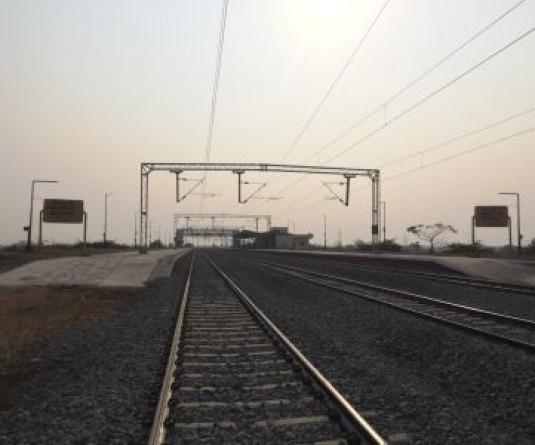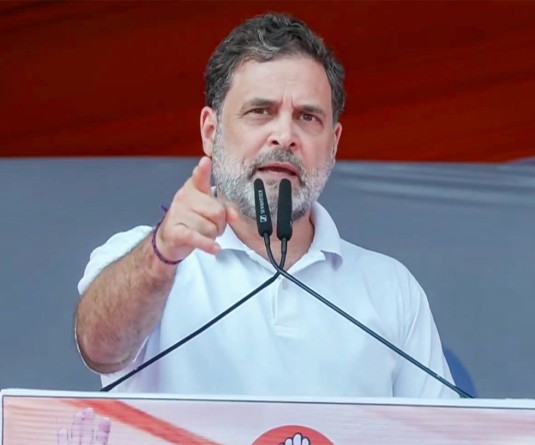
Mumbai, January 14 (Agencies): Anil Ambani and four board members of Reliance Natural Resources Limited (RNRL) have been barred by the Securities and Exchange Board of India from investing in the stock market till December 2011. The four board members who have been banned along with Group Chairman Anil Ambani are Satish Seth, Lalit Jalan, SC Gupta and JP Chalsani. In its order passed on Friday, the SEBI also banned two Anil Ambani group companies, RNRL and Reliance Infrastructure, from the secondary market for two years. Both RNRL and Reliance Infrastructure cannot invest in the secondary market till December 2012. The stock market regulator agreed to settle investigation in market dealings by the RNRL and Reliance Infrastructure for consent fees of Rs 50 crore. A Reliance Infrastructure spokesperson said that the the SEBI show-cause proceedings of June 2010 against the company and its directors had been voluntarily settled. “In accordance with SEBI consent mechanism, the settlement is without admission or denial of guilt. The settlement was made in interests of investors to pre-empt unnecessary and time-consuming litigation. The settlement maintains full financial flexibility of the company to implement its growth projects and order contemplates inter alia payment of settlement fees of Rs 25 crore jointly and severally by company and directors. The directors have voluntarily made payment of entire settlement fees, with no burden on Reliance Infra,” the spokesperson said.
The case is related to into certain market “dealings” by the two Anil Ambani group companies. SEBI said it began the investigation into the case after receipt of information that amounts raised by Anil Dhirubhai Ambani group companies through external commercial borrowings/foreign currency convertible bonds had been used by them to invest in stock market. The regulator then conducted investigations into the alleged affairs relating to the dealings, either directly or indirectly, in the shares of group company Reliance Communications by other group companies.
SEBI said that its investigation revealed that Reliance Infrastructure and RNRL (which has now been merged with another group firm Reliance Power) were prima facie responsible for misrepresenting the nature of investments in ‘yield management certificates/ deposits’ and the ‘profits and losses accounts in their annual reports for the years 2006-07, 2007-08 and 2008-09. Consequently, SEBI charged Reliance Infrastructure and RNRL, as also their top-management Anil Ambani, Seth, Jalan, Gupta and Chalsani of having violated varuious norms, including prohibition of fraudulent and unfair trade practices relating to securities market regulations.
Reliance Infrastructure and RNRL along with Group Chairman Anil Ambani, Seth, Jalan, Gupta and Chalsani were issued notices on June 7, 2010, and again on September 2, 2010 to appear for personal hearing before the SEBI. They jointly proposed on September 9, 2010 a settlement of the SEBI proceedings through a consent order and later proposed revised consent terms in the matter on December 3, 2010. After studying the proposals, a high-powered advisory committee of SEBI recommended the case for settlement and SEBI accepted these recommendations on January 4, 2011. The consent terms would be applicable on surviving companies if any of the entities undergo any change due to merger, amalgamation or other restructuring activities.
While RNRL and its directors were asked to pay Rs 25 crore as settlement charges, Reliance Infrastructure and its directors would pay another Rs 25 crore. SEBI said that the consent order was without prejudice to its right to initiate enforcement actions, including reopening of the proceedings pending against the entities if any of its terms are breached or any of the representations made before it are found to be untrue. While SEBI, in its notice did not clarify what “dealings” by RNRL and Reliance Infrastructure it was investigating into, various agencies, including Enforcement Directorate, have been investigating alleged irregularities in overseas debt instrument transactions by the two companies undertaken in 2007.
The case is related to into certain market “dealings” by the two Anil Ambani group companies. SEBI said it began the investigation into the case after receipt of information that amounts raised by Anil Dhirubhai Ambani group companies through external commercial borrowings/foreign currency convertible bonds had been used by them to invest in stock market. The regulator then conducted investigations into the alleged affairs relating to the dealings, either directly or indirectly, in the shares of group company Reliance Communications by other group companies.
SEBI said that its investigation revealed that Reliance Infrastructure and RNRL (which has now been merged with another group firm Reliance Power) were prima facie responsible for misrepresenting the nature of investments in ‘yield management certificates/ deposits’ and the ‘profits and losses accounts in their annual reports for the years 2006-07, 2007-08 and 2008-09. Consequently, SEBI charged Reliance Infrastructure and RNRL, as also their top-management Anil Ambani, Seth, Jalan, Gupta and Chalsani of having violated varuious norms, including prohibition of fraudulent and unfair trade practices relating to securities market regulations.
Reliance Infrastructure and RNRL along with Group Chairman Anil Ambani, Seth, Jalan, Gupta and Chalsani were issued notices on June 7, 2010, and again on September 2, 2010 to appear for personal hearing before the SEBI. They jointly proposed on September 9, 2010 a settlement of the SEBI proceedings through a consent order and later proposed revised consent terms in the matter on December 3, 2010. After studying the proposals, a high-powered advisory committee of SEBI recommended the case for settlement and SEBI accepted these recommendations on January 4, 2011. The consent terms would be applicable on surviving companies if any of the entities undergo any change due to merger, amalgamation or other restructuring activities.
While RNRL and its directors were asked to pay Rs 25 crore as settlement charges, Reliance Infrastructure and its directors would pay another Rs 25 crore. SEBI said that the consent order was without prejudice to its right to initiate enforcement actions, including reopening of the proceedings pending against the entities if any of its terms are breached or any of the representations made before it are found to be untrue. While SEBI, in its notice did not clarify what “dealings” by RNRL and Reliance Infrastructure it was investigating into, various agencies, including Enforcement Directorate, have been investigating alleged irregularities in overseas debt instrument transactions by the two companies undertaken in 2007.






